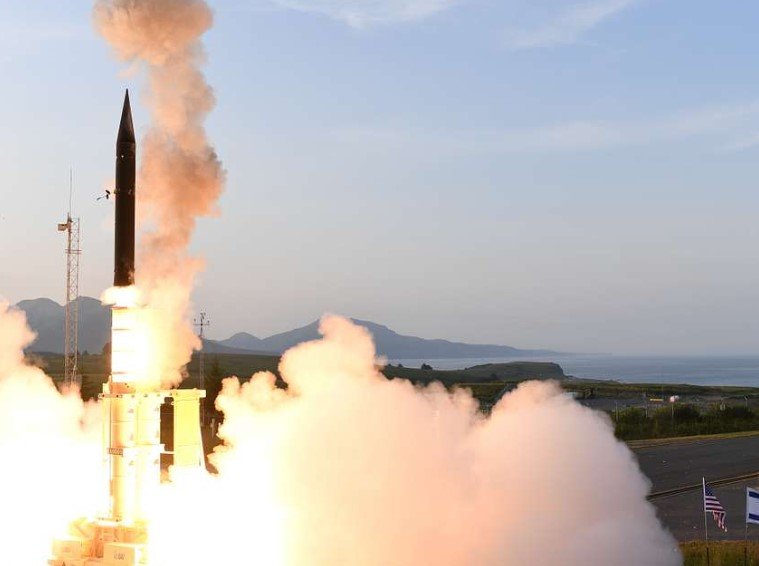A fresh flashpoint emerges as Israel threatens direct action in Yemen following an attempted missile attack by Iran-backed Houthis, reigniting regional tension just weeks after air raids on Tehran.
As night fell over the southern Israeli town of Sderot, residents looked skyward once again. This time, a ballistic missile streaked overhead — intercepted before impact. But what followed wasn’t silence. It was a warning. And not just to the Houthis in Yemen.
“The fate of Yemen is the same as that of Tehran,” declared Israeli Defence Minister Yoav Gallant in a statement laced with fury and firepower. “Whoever raises a hand against Israel — that hand will be cut off.”
With those words, the Israeli government sent a jarring message: retaliation isn’t just on the table — it’s about to be served.
A Warning That Echoes Beyond Sanaa
The missile, launched by Yemen’s Houthi rebels and brought down by Israeli air defenses near Sderot, wasn’t the first such attempt. But it came at a highly sensitive time — less than three weeks after Israel’s blistering campaign struck Iranian missile facilities, satellite sites, and alleged nuclear infrastructure near Esfahan and Natanz.
This wasn’t a random launch, Israel says. It was a continuation. A proxy echo of Iran’s lingering shadow.

Israeli intelligence believes the Houthis are trying to test the limits of Israel’s post-Tehran resolve — especially with global eyes turning elsewhere. But if the Houthis assumed Israel was ready to dial things down, they may have miscalculated.
Tel Aviv Talks Tougher Than Usual
Gallant’s phrasing was unusually blunt, even by Israel’s wartime rhetoric standards.
He didn’t hedge. Didn’t soften. Didn’t use “deterrence” or “containment.” He promised punishment — and in the same breath invoked last month’s controversial operations deep inside Iranian territory.
The phrase “head of the snake,” which Israel often uses to refer to Tehran, wasn’t just metaphor. It was a deliberate comparison — a stark reminder that Israel’s long-range capabilities and military patience have both evolved.
A senior IDF officer, speaking anonymously because he wasn’t authorized to go on the record, said plans for retaliatory strikes on Houthi weapons depots, radar stations, and naval drones in western Yemen “are mature.” The only thing pending? Timing.
One sentence from that officer stood out: “It’s not a matter of if. It’s a matter of calibration.”
Red Sea Chokepoint Now Looks Like a Fuse
The Houthis have increasingly flexed their missile and drone capabilities since the Gaza war reignited in October 2023. At first, their targets were U.S. and Israeli-linked shipping vessels. Then came direct threats on Israeli soil.
That escalation brings with it logistical headaches — and geopolitical landmines. Strikes on Yemen could risk upending recent ceasefire efforts with the Saudis, especially since Riyadh is trying to de-escalate its years-long fight against the Houthis to focus on economic growth and stability.
But in Tel Aviv, that’s a secondary concern. What matters now is what Israeli officials privately call the “cross-border tentacle strategy” — a belief that Iran’s proxies are part of a wider ring trying to encircle Israel, from Hezbollah in the north to the Houthis in the south.
Here’s what makes things even messier:
-
U.S. CENTCOM has reportedly urged restraint, fearing an Israeli air campaign in Yemen could spark wider Arab backlash or even revive hostilities between the Houthis and Saudi Arabia.
-
The Houthis have not formally claimed the intercepted missile — but officials in Sanaa haven’t denied involvement either.
-
Meanwhile, tensions in the Red Sea continue to disrupt global shipping. Maersk and Hapag-Lloyd have both rerouted vessels in the past week citing security concerns.
Houthis Dig In as Israel Draws Red Lines
In Yemen, Houthi military commanders are already shifting mobile missile launchers into more remote highlands, according to regional intelligence sources. These launchers are hidden, often disguised as civilian trucks, or shielded inside deep tunnel networks.
Despite this, Israel believes some of these systems — especially the Iranian-supplied Quds cruise missiles and Samad drones — are vulnerable to precision strikes.
A senior Israeli Air Force official told local broadcasters that “the Houthis don’t have the air defense capacity Iran does,” implying that any Israeli operation would be swift, surgical, and potentially conducted without a full-scale campaign.
Still, the Houthis thrive on chaos. Striking them risks stoking more of it.
What Could Happen Next: A Flash Risk Table
Here’s a quick glance at possible outcomes — and what each might trigger:
| Scenario | Immediate Impact | Broader Risk |
|---|---|---|
| Israel launches limited airstrikes on Houthi sites | Temporary blow to Houthi capabilities | Retaliatory drone or missile barrage on Eilat or southern Israel |
| Houthi missiles hit Israeli civilian or military targets | Domestic pressure for wider campaign | Regional backlash, UN condemnation, potential Saudi re-involvement |
| Israel strikes near Hodeidah port or civilian areas | Disruption of aid routes | Diplomatic fallout with U.S., humanitarian crisis spotlight |
| No Israeli retaliation | Perception of Israeli weakness | Emboldening of Iran-backed groups across region |
Netanyahu Faces Pressure, Abroad and at Home
For Prime Minister Benjamin Netanyahu, this isn’t just a military dilemma. It’s political dynamite.
His ruling coalition has faced criticism from both hawkish and centrist lawmakers for the perceived lack of clarity on Israel’s broader regional strategy. Some members of his own Likud party are urging immediate action against the Houthis, arguing that anything less would embolden Tehran’s network.
Meanwhile, public anger over the extended reserve call-ups and military costs is starting to bubble again, especially as families brace for more conflict.
“You cannot strike Tehran one week and ignore Sanaa the next,” one Likud lawmaker told Channel 12. “That’s not deterrence. That’s confusion.”
Netanyahu — often at his political best during crises — hasn’t addressed the Houthi missile personally yet. But aides say he is in “constant consultation” with Gallant and IDF Chief of Staff Herzi Halevi.
One source added: “He knows the risks. But he also knows the cost of doing nothing.
